
Plage de N'Gouja: The Hidden Gem of Mayotte
Plage de N'Gouja is a picturesque beach located on the southern coast of Mayotte, an island in the Indian Ocean. Known for its pristine white sands and clear turquoise waters, this beach offers a tranquil escape from the hustle and bustle of everyday life. The beach is surrounded by lush mangrove forests, which provide a natural habitat for a variety of wildlife, including the famous lemurs of Mayotte. One of the most captivating features of Plage de N'Gouja is its underwater world. The coral reefs just off the shore are teeming with vibrant marine life, making it a paradise for snorkelers and divers. You can expect to see colorful fish, sea turtles, and even dolphins if you're lucky. The waters are calm and shallow, perfect for swimming and wading. The beach is also a great spot for picnicking and relaxing under the shade of baobab trees. There are a few local eateries nearby where you can enjoy fresh seafood and traditional Mayotte cuisine. Whether you're looking to explore the natural beauty of the island or simply unwind by the sea, Plage de N'Gouja offers something for everyone.
Local tips in Plage de N'Gouja
- Visit during the dry season (May to October) for the best weather conditions.
- Bring your own snorkel gear to explore the underwater reefs.
- Pack insect repellent to ward off mosquitoes, especially in the evening.
- Respect the local wildlife and avoid feeding the lemurs.
- Try the local seafood dishes at nearby eateries for an authentic taste of Mayotte.
Plage de N'Gouja: The Hidden Gem of Mayotte
Plage de N'Gouja is a picturesque beach located on the southern coast of Mayotte, an island in the Indian Ocean. Known for its pristine white sands and clear turquoise waters, this beach offers a tranquil escape from the hustle and bustle of everyday life. The beach is surrounded by lush mangrove forests, which provide a natural habitat for a variety of wildlife, including the famous lemurs of Mayotte. One of the most captivating features of Plage de N'Gouja is its underwater world. The coral reefs just off the shore are teeming with vibrant marine life, making it a paradise for snorkelers and divers. You can expect to see colorful fish, sea turtles, and even dolphins if you're lucky. The waters are calm and shallow, perfect for swimming and wading. The beach is also a great spot for picnicking and relaxing under the shade of baobab trees. There are a few local eateries nearby where you can enjoy fresh seafood and traditional Mayotte cuisine. Whether you're looking to explore the natural beauty of the island or simply unwind by the sea, Plage de N'Gouja offers something for everyone.
When is the best time to go to Plage de N'Gouja?
Iconic landmarks you can’t miss
Beach N'Gouja
Explore Beach N'Gouja in Mayotte, a serene tropical paradise with stunning beaches and vibrant marine life waiting to be discovered.
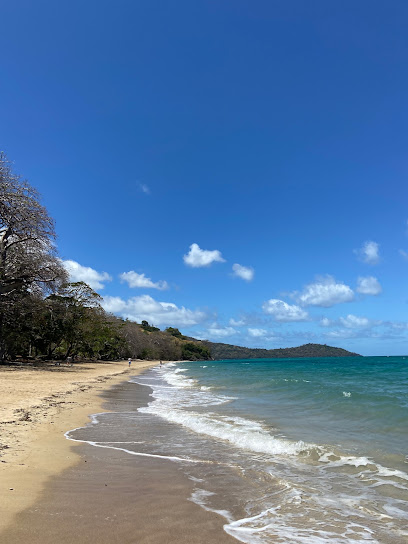
Le Jardin Maore
Experience the tranquil beauty of Le Jardin Maore, where relaxation meets adventure on the stunning shores of Mayotte's N'Gouja Beach.
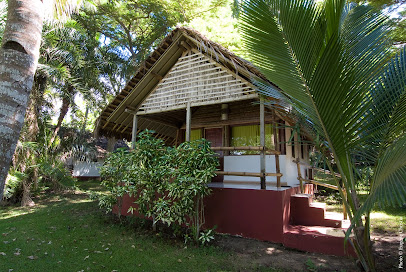
Hôtel Restaurant Sakouli
Enjoy a perfect blend of comfort, local cuisine, and stunning beach views at Hôtel Restaurant Sakouli in Mayotte.

Grande-Terre
Experience the breathtaking beauty and rich culture of Grande-Terre, an enchanting island paradise in Mayotte, known for its stunning beaches and vibrant marine life.
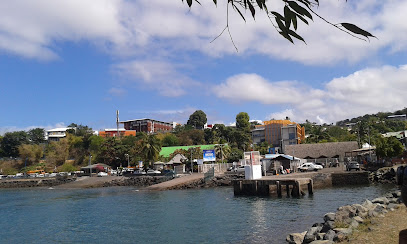
Dzaoudzi–Pamandzi International Airport
Dzaoudzi–Pamandzi International Airport is your gateway to the stunning natural beauty and vibrant culture of Mayotte, a hidden gem in the Indian Ocean.
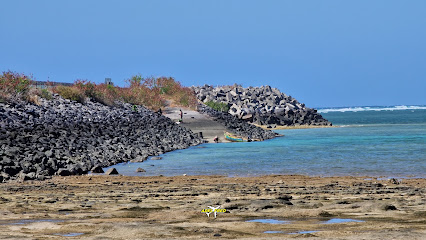
Hôtel Hamaha beach
Discover the serene beauty of Hôtel Hamaha Beach, a tropical paradise offering relaxation, local cuisine, and stunning ocean views in Mayotte.

Plage De Tanaraki
Experience the unspoiled beauty of Plage De Tanaraki, a tranquil beach paradise in Mayotte perfect for relaxation and adventure.
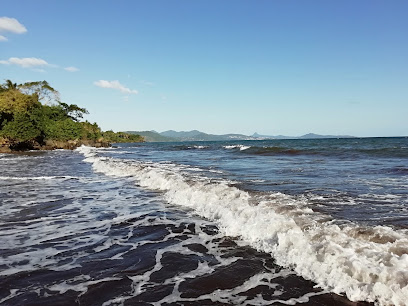
Musicale Plage
Discover the serene beauty of Musicale Plage, a stunning beach pavilion in Bandrele, Mayotte, perfect for relaxation and cultural exploration.
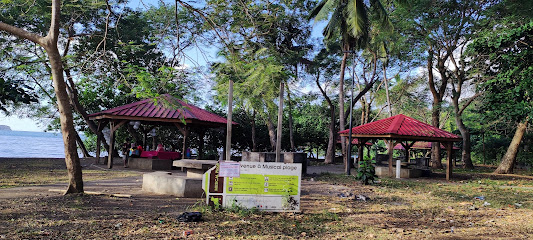
N’Gouja
Discover the stunning N’Gouja Beach in Mayotte, where white sands meet crystal-clear waters for a perfect tropical getaway.
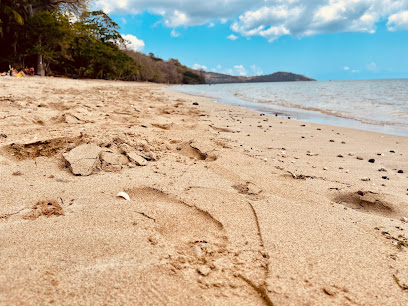
Mont Choungui
Discover the breathtaking beauty of Mont Choungui, the highest peak in Mayotte, offering stunning views and rich biodiversity for every adventurer.
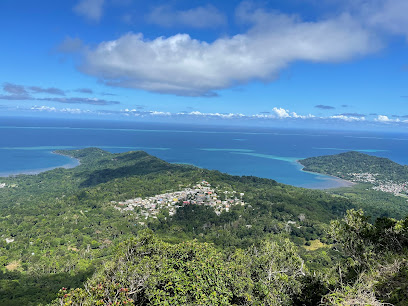
Le Lagon Maoré
Explore the vibrant marine life at Le Lagon Maoré, Mayotte's premier diving center, and discover the enchanting underwater world.
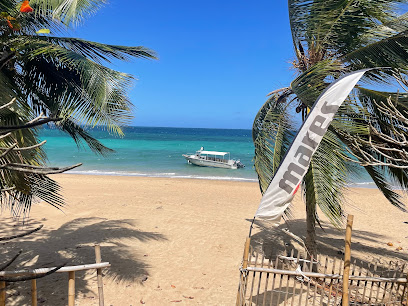
Residence maeva
Experience the local charm and comfort of Residence Maeva, your gateway to exploring the breathtaking beauty of Mayotte.
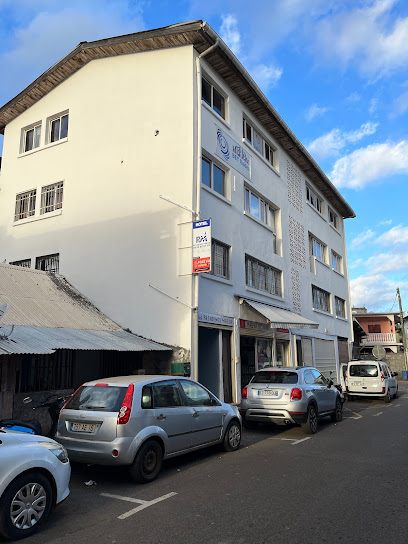
Les Baobabs
Experience tranquility and natural beauty at Les Baobabs, a charming inn surrounded by iconic baobab trees in the heart of Mayotte.

Plage de Sakouli
Experience the tranquil beauty of Plage de Sakouli, a stunning beach in Mayotte, where crystal-clear waters and soft sands await your arrival.
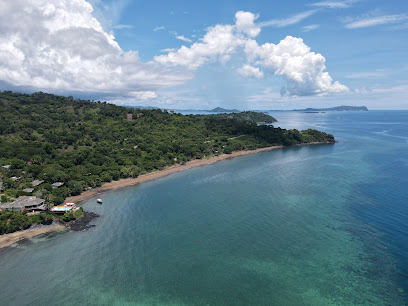
Tahiti plage
Explore the serene beauty of Tahiti Plage in Mayotte, where turquoise waters meet white sandy shores for an unforgettable beach experience.
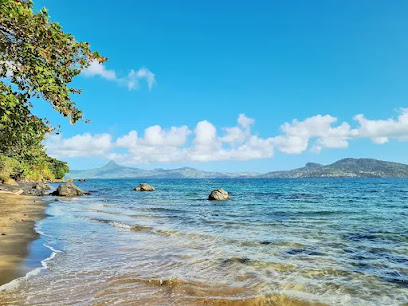
Unmissable attractions to see
Plage du Faré
Explore the tranquil shores and vibrant marine life of Plage du Faré, a hidden gem on Mayotte's coastline perfect for relaxation and adventure.
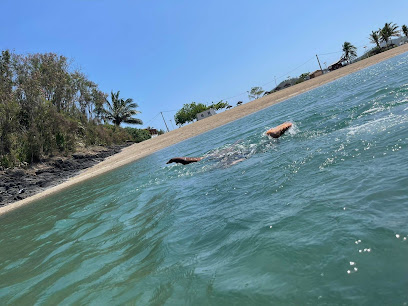
Mont Choungui
Explore the breathtaking landscapes and diverse ecosystems of Mont Choungui, a protected area perfect for hiking and adventure in Mayotte.
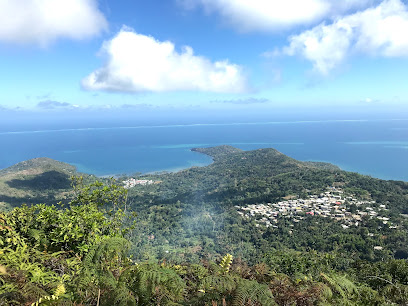
Le Lagon Maoré
Experience the underwater wonders of Mayotte at Le Lagon Maoré, your premier scuba diving destination on N'Gouja Beach.
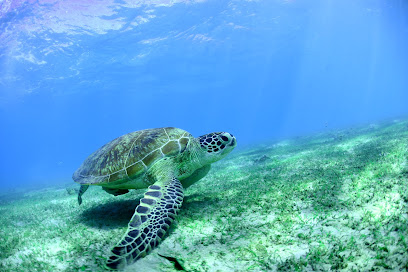
Pointe de Kani Keli
Discover breathtaking views and natural beauty at Pointe de Kani Keli, a must-visit observation deck in Mayotte.
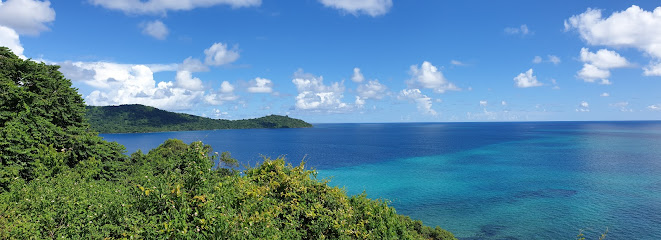
Plage de Petite Moya
Experience the serene beauty of Plage de Petite Moya, a stunning beach destination in Mayotte, perfect for relaxation and adventure.
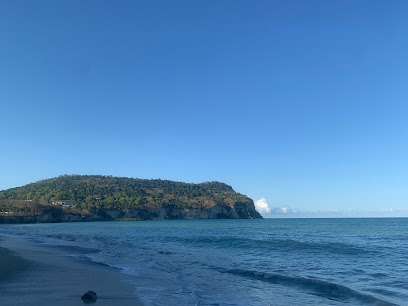
Plage du Préfet
Experience the untouched beauty of Plage du Préfet, a serene beach destination in Mayotte perfect for relaxation and water adventures.
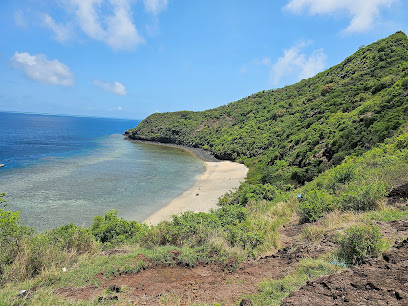
Via Ferrata de Bouéni
Discover the breathtaking Via Ferrata de Bouéni, an exhilarating climbing experience in Mayotte, blending adventure with stunning natural beauty.
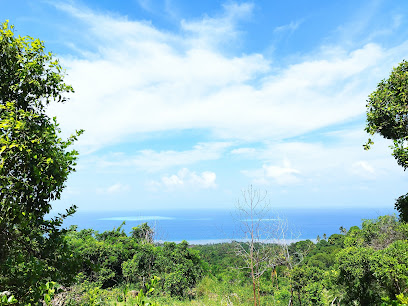
Gîte de Hagnoundrou, Bouéni
Explore the serene beauty and rich culture of Gîte de Hagnoundrou in Bouéni, Mayotte—a perfect retreat for nature lovers and cultural enthusiasts.
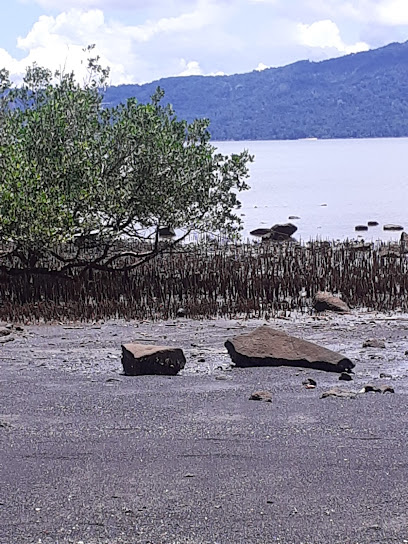
Plage de Mbouini
Experience the pristine sands and crystal-clear waters of Plage de Mbouini, a hidden paradise on Mayotte's coast, perfect for relaxation and adventure.
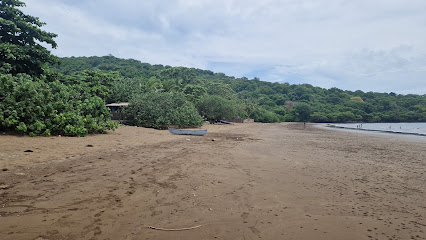
Mbouanatsa Plage
Experience the tranquil paradise of Mbouanatsa Plage, a stunning beach destination in Mayotte, perfect for relaxation, swimming, and exploring marine life.
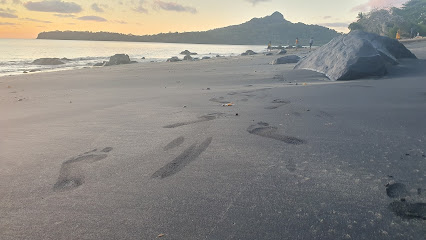
Îlot de Sable Blanc
Discover the untouched beauty of Îlot de Sable Blanc in Mayotte, where pristine beaches meet vibrant marine life in a tranquil paradise.
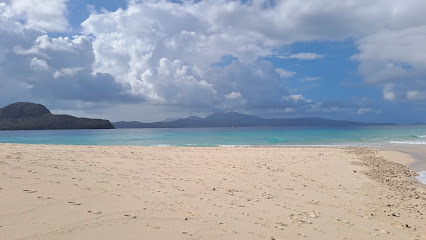
Maison du Gouverneur
Discover the historical significance and architectural beauty of Maison du Gouverneur in Dzaoudzi, a true gem of Mayotte's cultural heritage.
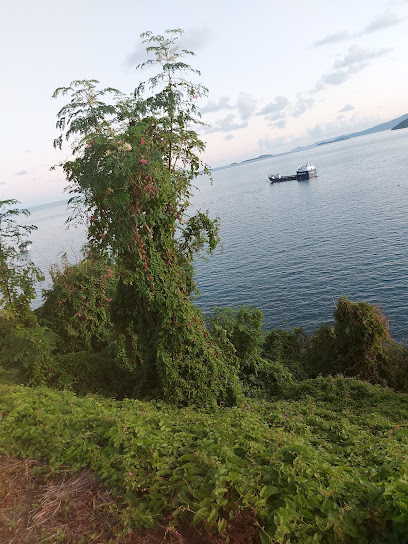
Botanical Garden
Discover the tranquil beauty of Mayotte's Botanical Garden, a lush oasis filled with diverse flora and a perfect spot for relaxation and education.

Air de repos de MRONABEJA
Experience tranquility at Air de repos de MRONABEJA, a hidden gem in Mayotte's stunning natural landscapes, perfect for relaxation and exploration.
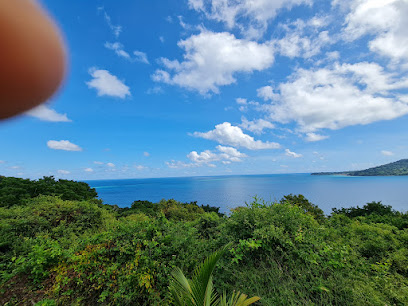
Baie de soulou
Experience the breathtaking beauty and tranquility of Baie de Soulou, a hidden gem in Mayotte perfect for nature lovers and outdoor enthusiasts.
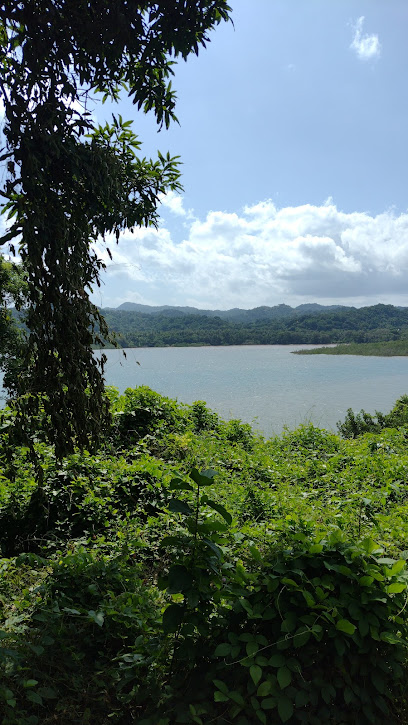
Essential places to dine
Le Faré
Discover the rich flavors of Mayotte at Le Faré, where every dish tells a story in an inviting setting.
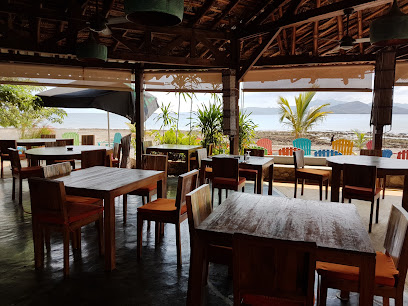
O'lolo Hôtel Mayotte
Discover paradise at O'lolo Hôtel Mayotte - where stunning beaches meet thrilling adventures in a serene tropical oasis.
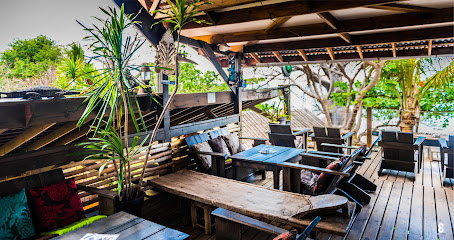
Le Jardin Maore
Experience exquisite dining and thrilling diving adventures at Le Jardin Maore on the stunning shores of Plage N'Gouja in Mayotte.
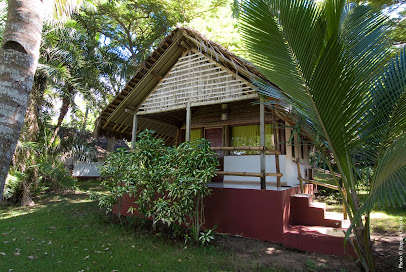
Hôtel Restaurant Sakouli
Experience delightful dining and stunning ocean views at Hôtel Restaurant Sakouli in beautiful Mayotte.

Hippocampe Restaurant
Discover exquisite local flavors at Hippocampe Restaurant in Mamoudzou, where culinary excellence meets island charm.
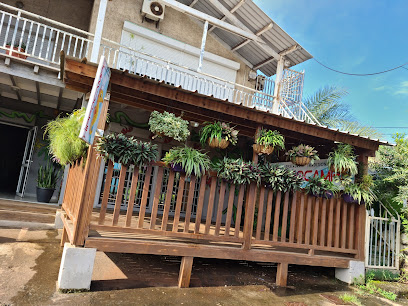
Crêperie La Bigoudene
Experience authentic French crêpes at Crêperie La Bigoudene in Mamoudzou - a culinary delight on Mayotte's picturesque shores.
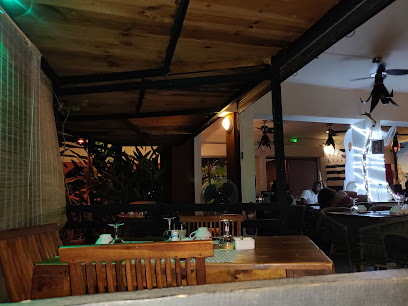
Le Moya
Discover authentic French cuisine at Le Moya in Labattoir - where every meal is a celebration of flavor.
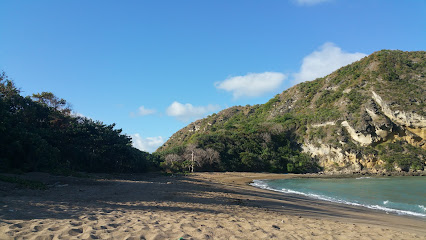
Le Moana
Discover authentic Mayotte cuisine at Le Moana – where fresh ingredients meet island hospitality.
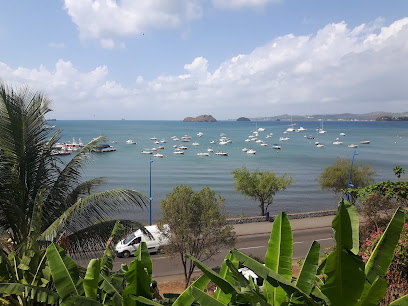
Restaurant La Citronnelle
Discover authentic Mayotte cuisine at Restaurant La Citronnelle – where fresh ingredients meet delightful flavors in a charming atmosphere.
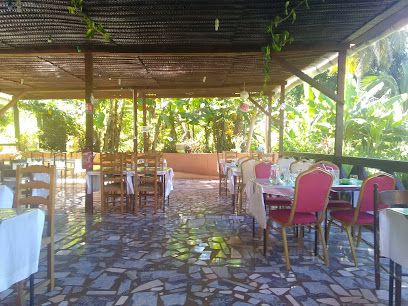
Auberge du Rond-point
Discover the flavors of Mayotte at Auberge du Rond-point - where local cuisine meets warm hospitality in Mamoudzou.
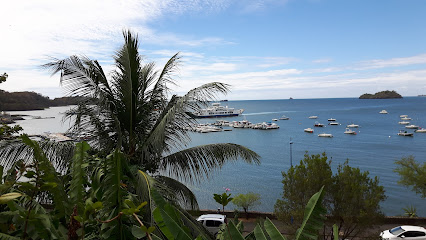
Le Citron Vert
Discover authentic Mayotte flavors at Le Citron Vert - an inviting restaurant in Mamoudzou offering a memorable dining experience.
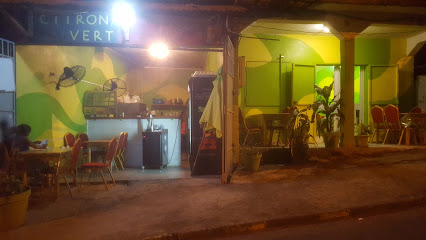
Lapouz Noz
Discover authentic Mayotte cuisine at Lapouz Noz, where every dish tells a story of culture and flavor.
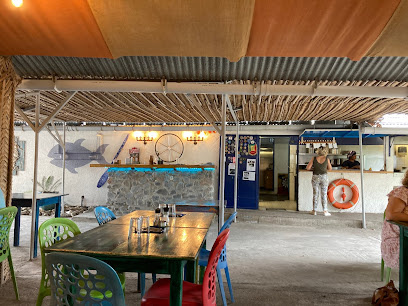
Le Boboka
Discover Le Boboka: A culinary gem in Mamoudzou offering authentic flavors and a warm dining atmosphere perfect for tourists.
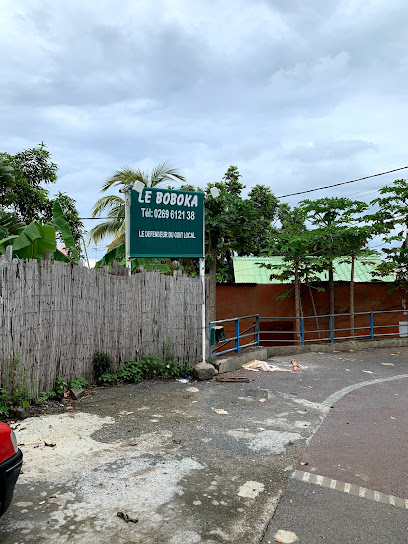
Nasso na Bisso
Discover Nasso na Bisso in Sada for an authentic taste of Mayotte's vibrant culinary scene featuring fresh local ingredients.
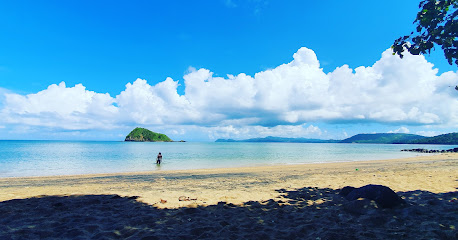
L'Auberge de l'Île
Discover exquisite dining at L'Auberge de l'Île in Mayotte – where fresh seafood meets island flavors.
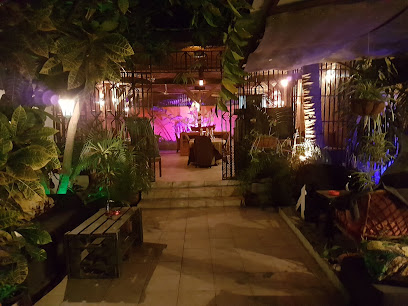
Markets, malls and hidden boutiques
Le Jardin Maore
Experience the tranquility of Le Jardin Maore, where stunning beaches, vibrant diving, and exquisite dining create unforgettable memories in Mayotte.
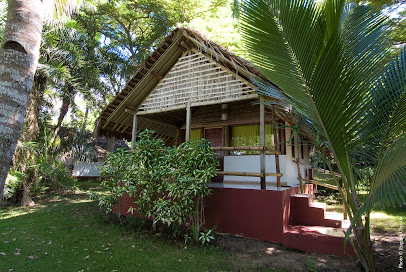
Boutique Orange Kaweni - Mamoudzou - Mayotte
Discover seamless connectivity at Boutique Orange Kaweni in Mamoudzou, your go-to for mobile needs and expert repairs in beautiful Mayotte.
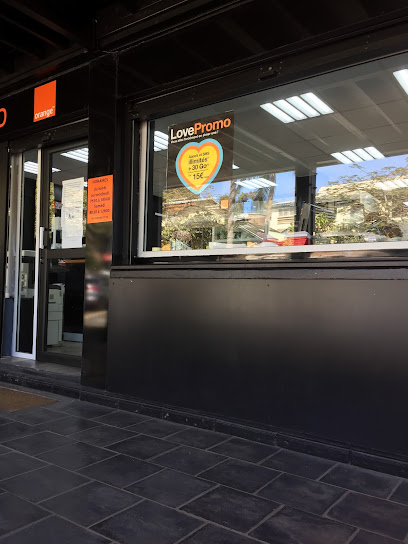
MAGASIN SOPHIATA SOUFFOU
Explore the local flavors and practical finds at Magasin Sophiata Souffou, a charming grocery and hardware store in Chirongui, Mayotte.
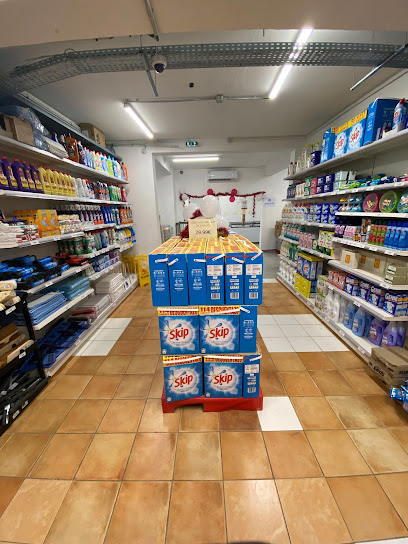
Douka Bé Kani Kéli
Explore local flavors and culture at Douka Bé Kani Kéli, the vibrant supermarket in Kani Keli, Mayotte, offering fresh produce and unique local delicacies.
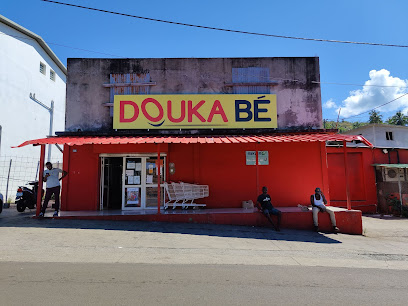
Jeleo boutique
Explore Jeleo Boutique in Chirongui for unique clothing, leather goods, and festive decorations, reflecting the vibrant culture of Mayotte.
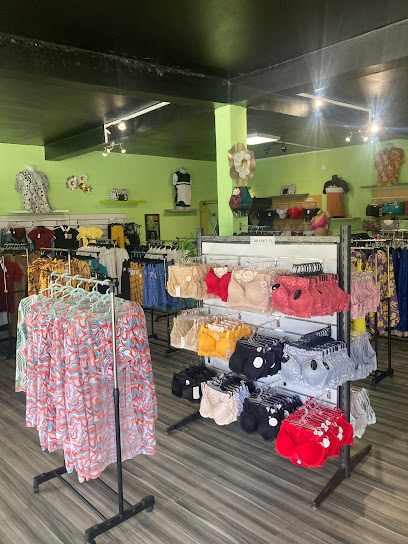
UVAGA
Discover unique fashion and local styles at UVAGA, the premier clothing store in Mamoudzou, Mayotte for an unforgettable shopping experience.
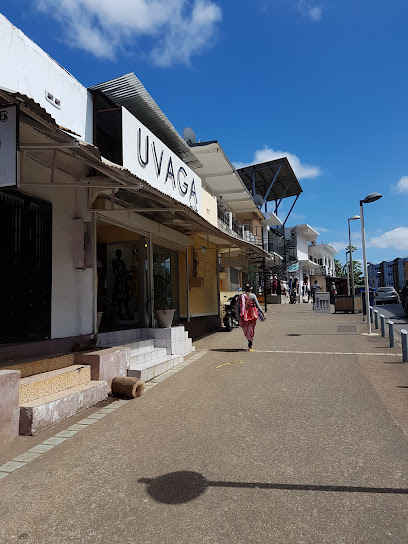
Le Building boutique
Explore local flavors and essentials at Le Building Boutique, a charming grocery store in Chiconi, Mayotte.
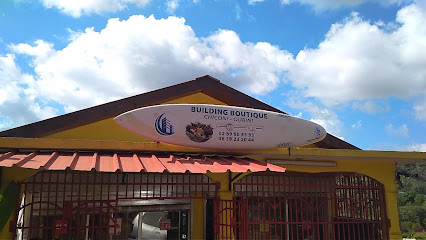
L'Atelier des Titounes
Discover unique second-hand treasures for children and families at L'Atelier des Titounes in Sada, Mayotte.
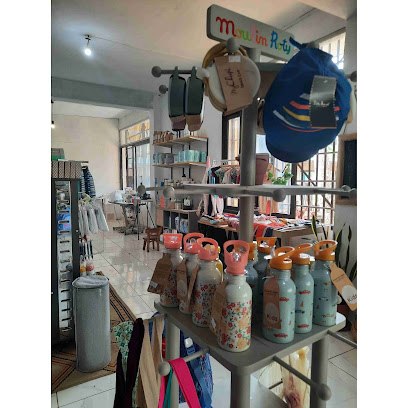
Manga Market
Explore Manga Market in Sada, a vibrant general store showcasing local crafts and delicacies of Mayotte, perfect for authentic souvenirs.

BIOTROC
Discover BIOTROC in Bouéni, Mayotte – your go-to spot for fresh produce, tasty fast food, and reliable internet access.
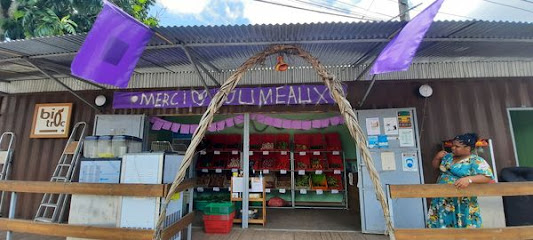
Magasin MZE
Discover local flavors and everyday essentials at Magasin MZE, your go-to convenience store in Sohoa Cavani, Mayotte.
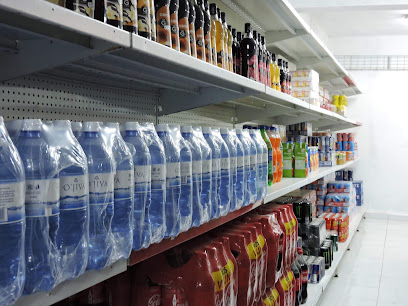
Mwana & Shababy Concept
Explore Mwana & Shababy Concept in Combani, Mayotte for trendy youth clothing and accessories at family-friendly prices.

Caverne Fashion
Discover quality work clothing in Ouangani at Caverne Fashion, where style meets functionality in the heart of Mayotte.
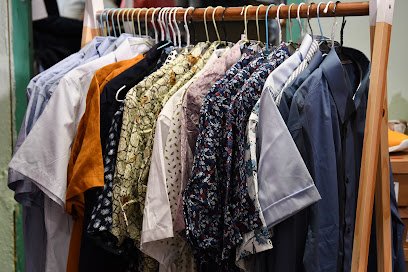
Sanah Modesty
Discover unique modest fashion at Sanah Modesty in Mamoudzou, where local culture meets contemporary style in a welcoming boutique atmosphere.
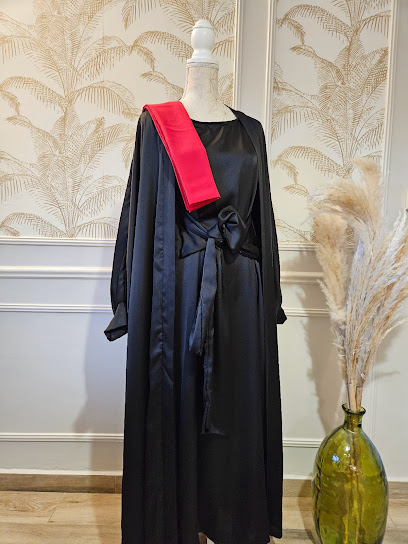
NBL Naturalia Bio Loisir
Experience culinary delights and unique furniture shopping at NBL Naturalia Bio Loisir in Boueni, Mayotte – an unforgettable fusion of taste and style.
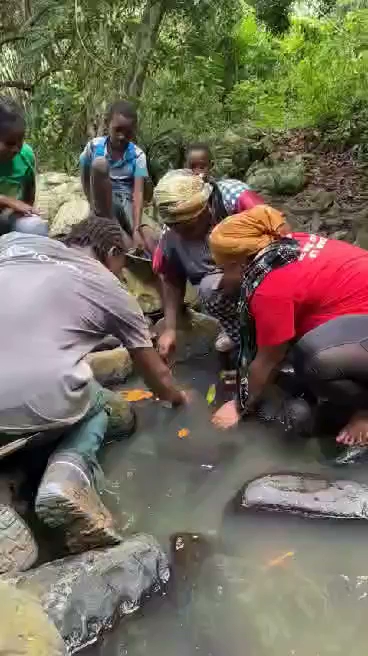
Essential bars & hidden hideouts
Beach N'Gouja
Experience the beauty of Beach N'Gouja, a tropical paradise in Mayotte, where relaxation meets adventure in stunning surroundings.
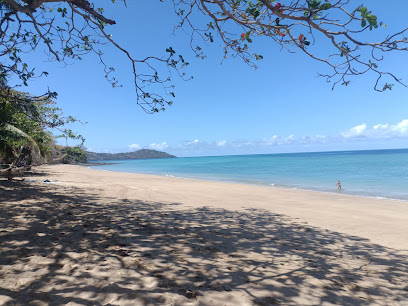
Le Jardin Maore
Discover the perfect blend of dining and diving at Le Jardin Maore, a seaside gem in Mayotte offering unforgettable experiences.
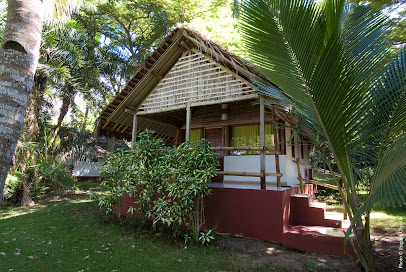
Barakili
Experience the vibrant culture and tropical ambience at Barakili, the perfect bar in Mamoudzou, Mayotte for relaxation and socializing.
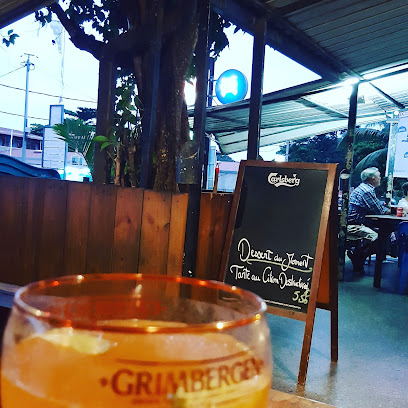
M'biwi
Discover the vibrant nightlife of Mayotte at M'biwi, a lively bar in Mamoudzou offering a diverse drink menu and a welcoming atmosphere.
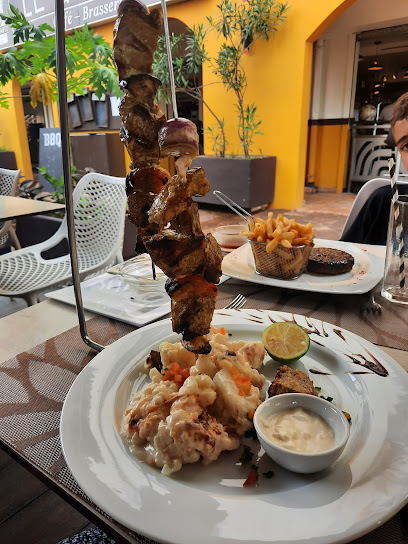
Restaurant La Citronnelle
Experience the essence of Mayotte's cuisine at Restaurant La Citronnelle, a charming eatery in Kani Keli offering fresh, local flavors.
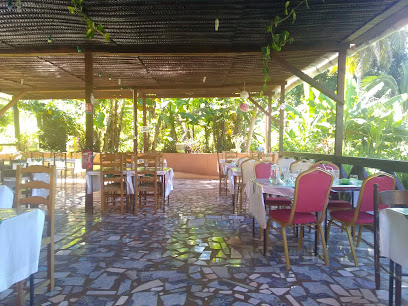
Le Voulé
Discover Le Voulé in Mamoudzou, where vibrant flavors meet live music for an unforgettable dining experience in Mayotte.
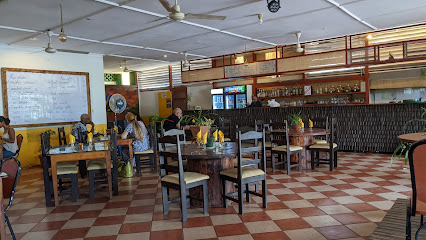
Le Mermoz
Experience the vibrant nightlife of Mamoudzou at Le Mermoz, where exquisite cocktails and tapas meet a relaxing lounge atmosphere in Mayotte.
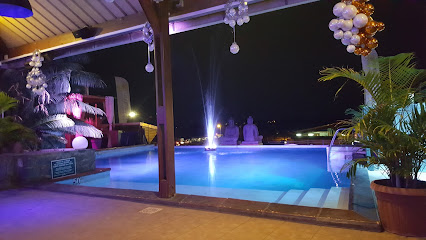
M'ronibe Snack Bar
Experience the authentic flavors of Mayotte at M'ronibe Snack Bar, a culinary haven in Kani Keli offering delicious local dishes.
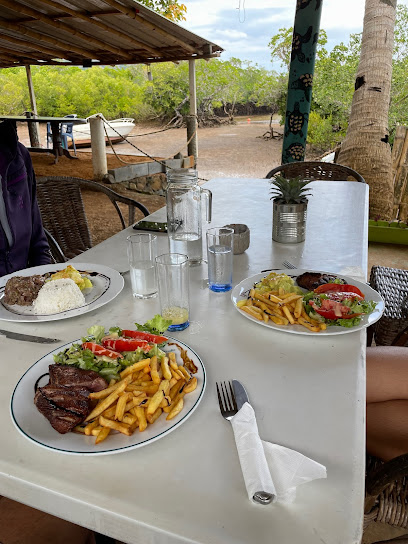
3 Baobab
Experience the vibrant flavors of Mayotte at 3 Baobab, a charming restaurant in Boueni offering an authentic culinary journey.
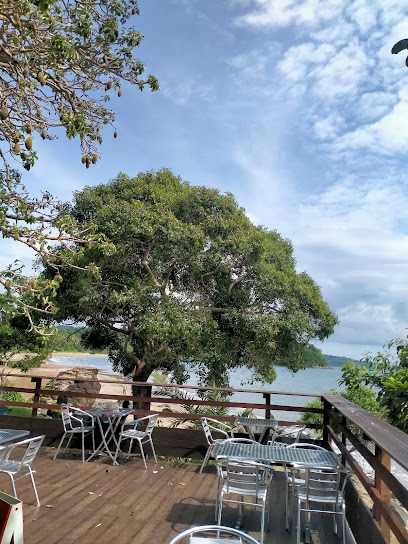
Le Makwé Bar
Experience the lively atmosphere of Le Makwé Bar in Tsararano, Mayotte, where local flavors and vibrant culture come alive.
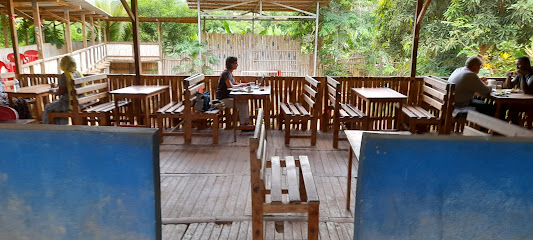
Tchak bé
Experience the vibrant nightlife at Tchak bé, Boueni’s hotspot for drinks, music, and great company in the heart of Mayotte.
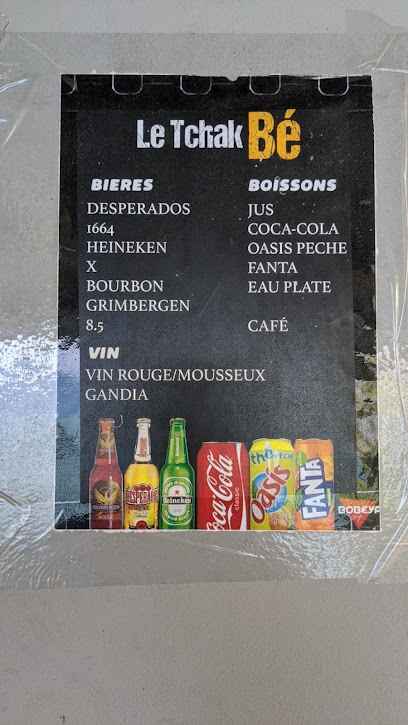
La Cabane Gourmande
Experience the vibrant flavors of Mayotte at La Cabane Gourmande, a must-visit restaurant in Kani Kéli offering authentic local cuisine.
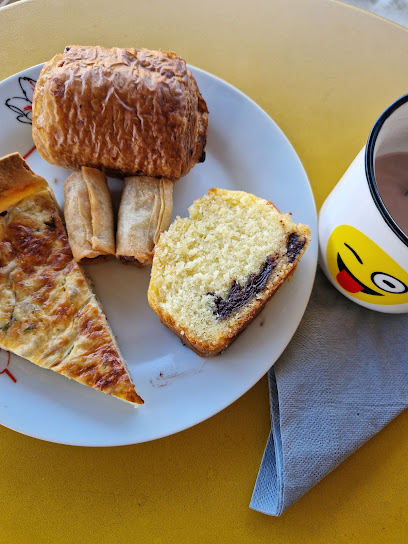
FarWést
Discover the pulsating heart of Bandrele at FarWést, a live music bar where vibrant performances and local culture come alive under the stars.
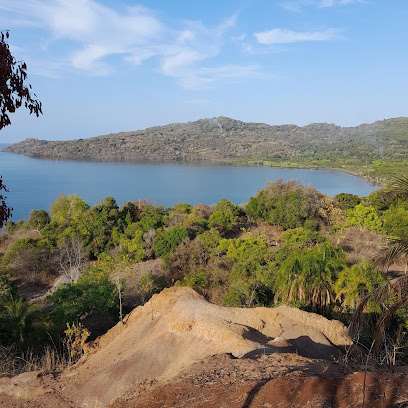
Bar du N'Gouja
Discover the vibrant ambiance of Bar du N'Gouja in Kani Kéli, where tropical flavors and stunning views create the perfect island getaway.
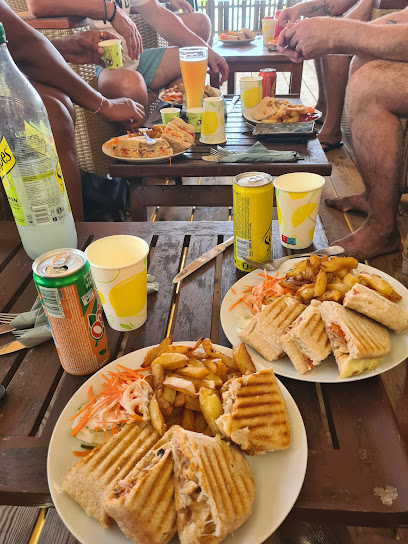
Knet
Discover the vibrant atmosphere of Knet, a top bar in Mamoudzou, where excellent drinks and lively local culture come together for an unforgettable experience.

Local Phrases about Plage de N'Gouja
-
- HelloSalama
[sa-la-ma] - GoodbyeKwaheri
[kwa-he-ri] - YesEwe
[e-we] - NoHapana
[ha-pa-na] - Please/You're welcomeTafadhali
[ta-fa-dha-li] - Thank youAsante
[a-san-te] - Excuse me/SorrySamahani
[sa-ma-ha-ni] - How are you?U hali gani?
[u ha-li ga-ni] - Fine. And you?Mzuri. Na wewe?
[mzu-ri. na we-we] - Do you speak English?Unasema Kiingereza?
[u-na-se-ma kin-ge-re-za] - I don't understandSielewi
[sie-le-wi]
- HelloSalama
-
- I'd like to see the menu, pleaseNataka kuona menyu, tafadhali
[na-ta-ka ku-o-na me-nyu, ta-fa-dha-li] - I don't eat meatSili nyama
[si-li nya-ma] - Cheers!Mambo!
[mam-bo] - I would like to pay, pleaseNingependa kulipa, tafadhali
[ni-nge-pen-da ku-li-pa, ta-fa-dha-li]
- I'd like to see the menu, pleaseNataka kuona menyu, tafadhali
-
- Help!Msaada!
[m-sa-a-da] - Go away!Enda zako!
[en-da za-ko] - Call the Police!Piga polisi!
[pi-ga po-li-si] - Call a doctor!Piga daktari!
[pi-ga dak-ta-ri] - I'm lostNimepotea
[ni-me-po-te-a] - I'm illNinaumwa
[ni-na-um-wa]
- Help!Msaada!
-
- I'd like to buy...Ningependa kununua...
[ni-nge-pen-da ku-nu-nua] - I'm just lookingNinaangalia tu
[ni-na-an-ga-li-a tu] - How much is it?Bei ni kiasi gani?
[bei ni ki-a-si ga-ni] - That's too expensiveHiyo ni ghali sana
[hi-yo ni gha-li sa-na] - Can you lower the price?Unaweza kupunguza bei?
[u-na-we-za ku-pun-gu-za bei]
- I'd like to buy...Ningependa kununua...
-
- What time is it?Saa ngapi?
[sa-a nga-pi] - It's one o'clockNi saa moja
[ni sa-a mo-ja] - Half past (10)Saa tano na nusu
[sa-a ta-no na nu-su] - MorningAsubuhi
[a-su-bu-hi] - AfternoonMchana
[m-cha-na] - EveningJioni
[jo-ni] - YesterdayJana
[ja-na] - TodayLeo
[le-o] - TomorrowKesho
[ke-sho] - 1Moja
[mo-ja] - 2Mbili
[m-bi-li] - 3Tatu
[ta-tu] - 4Nne
[n-ne] - 5Tano
[ta-no] - 6Sita
[si-ta] - 7Saba
[sa-ba] - 8Nane
[na-ne] - 9Tisa
[ti-sa] - 10Kumi
[ku-mi]
- What time is it?Saa ngapi?
-
- Where's a/the...?Iko wapi...?
[i-ko wa-pi] - What's the address?Anwani ni gani?
[an-wa-ni ni ga-ni] - Can you show me (on the map)?Unaweza kunionyesha (kwenye ramani)?
[u-na-we-za ku-ni-o-nye-sha (kwe-ne ra-ma-ni)] - When's the next (bus)?Basi lijalo litakuwa saa ngapi?
[ba-si li-ja-lo li-ta-ku-wa sa-a nga-pi] - A ticket (to ....)Tikiti (kwenda ....)
[ti-ki-ti (kwen-da)]
- Where's a/the...?Iko wapi...?
History of Plage de N'Gouja
-
Plage de N'Gouja, like much of Mayotte, was originally inhabited by indigenous tribes. The earliest settlers are believed to have arrived around the 9th century. These tribes were primarily of Bantu origin, and their culture and traditions have left a lasting impact on the island.
-
During the 10th to 15th centuries, Mayotte, including the area around Plage de N'Gouja, became part of the Swahili Coast trading network. Arab traders and Persian merchants frequented the island, bringing Islam and establishing trade routes that connected Mayotte to the larger Indian Ocean world. The influences of Swahili culture are still evident in the local language and architecture.
-
In 1841, the Sultan of Mayotte ceded the island to France, marking the beginning of the colonial era. Plage de N'Gouja, like the rest of the island, saw significant changes as the French established plantations and introduced new crops. The colonial period also brought infrastructure development and a new administrative system.
-
The fertile lands around Plage de N'Gouja were ideal for agriculture. During the late 19th and early 20th centuries, vanilla plantations became prominent. The vanilla industry played a crucial role in the local economy, and remnants of old plantations can still be found in the area.
-
During World War II, Mayotte's strategic location in the Indian Ocean made it an important point for the Allies. Plage de N'Gouja and its surroundings saw military activity and fortifications being built. The war period brought about a mix of challenges and developments for the local population.
-
After World War II, Mayotte experienced a period of political change. In 1974, a referendum was held, and the people of Mayotte chose to remain a part of France rather than join the newly independent Comoros. This decision led to significant investments in infrastructure and public services, impacting the development of areas like Plage de N'Gouja.
-
In recent decades, Plage de N'Gouja has become a popular destination for ecotourism, thanks to its pristine beaches and rich marine life. Conservation efforts have been put in place to protect the coral reefs and sea turtles that frequent the area. These initiatives aim to preserve the natural beauty and biodiversity of Plage de N'Gouja for future generations.
Plage de N'Gouja Essentials
-
Plage de N'Gouja is located on the island of Mayotte in the Indian Ocean. The nearest airport is Dzaoudzi-Pamandzi International Airport (DZA), which is approximately 30 kilometers from the beach. From the airport, you can take a taxi or rent a car to reach Plage de N'Gouja. The journey typically takes around 45 minutes by road. Alternatively, you can use local ferry services from Dzaoudzi to the main island and then proceed by road to the beach.
-
While visiting Plage de N'Gouja, the most convenient way to get around is by renting a car. This allows you to explore the island at your own pace. Taxis are also available, but can be expensive for longer trips. Public buses operate between major towns and villages, but may not be the most reliable means of transportation. Bicycles and scooters can be rented for shorter distances and provide a more intimate way to explore the local area.
-
The official currency of Mayotte is the Euro (EUR). Credit and debit cards are widely accepted in larger hotels, restaurants, and shops, but it's advisable to carry cash for smaller establishments and local markets. ATMs are available in major towns, but it is recommended to withdraw sufficient cash before heading to more remote areas like Plage de N'Gouja.
-
Plage de N'Gouja is generally safe for tourists. However, it is advisable to take standard precautions such as not leaving valuables unattended and avoiding walking alone at night. Certain areas in the main town of Mamoudzou have higher crime rates, so it's best to stay vigilant. Always keep an eye on your belongings, especially in crowded places and local markets.
-
In case of emergencies, dial 112 for immediate assistance. The nearest medical facility is the Mamoudzou Hospital, located about 30 kilometers from Plage de N'Gouja. It is advisable to have travel insurance that covers medical emergencies. Pharmacies are available in Mamoudzou where you can purchase over-the-counter medications for minor health issues.
-
Fashion: Do dress modestly, especially when visiting villages or religious sites. Avoid wearing overly revealing clothing. Religion: Do respect local customs and traditions. Always ask for permission before taking photos of people or religious sites. Public Transport: Do be courteous and respectful to fellow passengers. Don't be loud or disruptive. Greetings: Do greet locals with a polite 'bonjour' and a handshake. Avoid using overly familiar gestures. Eating & Drinking: Do try local dishes and be open to new flavors. Don't refuse food or drink offers, as it may be considered impolite.
-
To experience Plage de N'Gouja like a local, visit the beach early in the morning when it is less crowded. Engage with local fishermen and learn about their daily catch. Don't miss the opportunity to swim with the friendly sea turtles that frequent the area. Also, try to attend local festivals and events to get a deeper understanding of the island's culture and traditions.
Nearby Cities to Plage de N'Gouja
-
Things To Do in Sada
-
Things To Do in Bandrele
-
Things To Do in Chiconi
-
Things To Do in Dembeni
-
Things To Do in Mamoudzou
-
Things To Do in Acoua
-
Things To Do in Koungou
-
Things To Do in Domoni
-
Things To Do in Ouani
-
Things To Do in Iconi
-
Things To Do in Moroni
-
Things To Do in Mahajanga
-
Things To Do in Majunga
-
Things To Do in Nosy Be
-
Things To Do in Antsiranana




